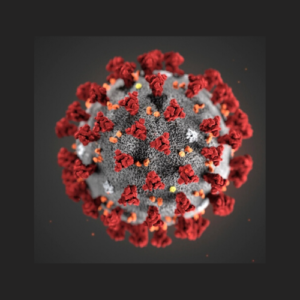This strain of Coronavirus (COVID-19), results in a respiratory infection that causes patients to develop mild to severe symptoms including a cough, fever, and difficulty breathing. Symptoms may take up to 14 days to appear after exposure to COVID-19.
Since Huntington disease (HD) is a chronic disease, questions and concerns about the impact of COVID-19 is understandable. It is for that reason that we encourage you to discuss your current overall health with your medical team including your clinician, for prevention and treatment. At this time, a vaccine for COVID-19 is not yet available.
How to Prevent the Infection
Public health agencies in Canada and worldwide have described actions that can help prevent the spread of viruses that cause respiratory illnesses.
Take these steps to reduce exposure to the virus and protect your health:
- Wash your hands thoroughly and regularly with soap and water.
- Sneeze and cough into your sleeve; when using tissues, immediately dispose of them into the garbage as soon as possible and wash your hands afterwards.
- Avoid touching your eyes, nose or mouth.
- Regularly clean commonly used surfaces and devices you touch or handle.
- Try to avoid contact with people who are showing symptoms of respiratory illness, such as coughing.
- Check national travel advice before planning or taking trips.
- If you have a fever, cough and difficulty breathing, seek medical care early and share previous travel history with your health-care provider.
- If you have a scheduled visit with your health-care provider, contact them via phone/or portal first to see what other options you may have (many clinics have increased their use of telemedicine) as visiting a clinic can increase your risk of being exposed to the virus. Follow the advice of your health-care provider.
The public health authorities are emphasizing that if you think you might be sick, stay home from work or school.
Be Prepared
Everyone should have a plan in case they or a loved one becomes ill. Your plan may include:
- Gather the contact information for your doctors, clinic, pharmacy and your insurance.
- Write down the names and doses of your medications.
- Have enough medication for one to two weeks in case you cannot get to the pharmacy to refill your prescriptions.
- Ensure all your medications have refills available, so you do not have to leave the house if you become ill.
- Have extra supplies like rubbing alcohol, hand sanitizers and soap to wash your hands.
- Keep extra food supplies on hand, in case you are unable to leave the house.
For more information, please visit the Government of Canada’s website.
What to Do if You Think You Might Have the Infection
In general, when someone gets sick, it is important to stay hydrated, continue to eat (if possible) and take prescribed medications.
If you have HD and you think you may have been exposed to COVID-19, please visit the Government of Canada’s website for the most up-to-date advice on what to do. You can also call your health-care provider or local public health office for specific instructions. Please keep in mind; it is important to call your provider before going into their office if you have a respiratory illness such as coughing.
The risk of contracting COVID-19 in Canada remains low, with only 45 confirmed cases as of March 5, 2020. However, if you live with HD and become unwell for any reason, it is important that you stay hydrated, eat as possible, continue to take your prescribed medications and connect with your health care team.
More information on:
Sites of interest:
- Public Health Agency of Canada
- Government of Canada novel coronavirus toll-free information line: 1-833-784-4397
- Government of Canada Travel Advisories
- World Health Organization
- Provincial ministries of health/government and municipal public health websites.

